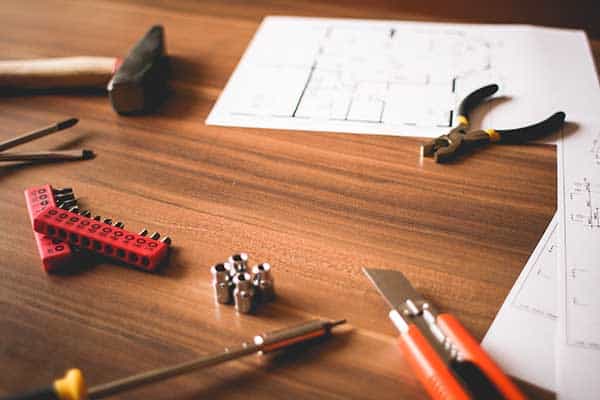A Balanced Approach To Leadership Skill Sets
Ethan Lin is the founder of www.leadershipgeeks.com and www.personality-central.com. He has a passion to empower and develop people. Professionally, he is a corporate trainer focusing on sales training, leadership development and team building with his company Personality Central.
Leadership, like any other discipline, is a combination of skills that can be learnt. Leadership is nurtured. Some that argue that you are born a leader or you’re not. I disagree.
While there are some personalities like extroverts that naturally gravitate to social leadership, introverts can do well for a different reason: they tend to be better listeners. Different personalities have their strengths; just because a person is more extroverted or more decisive does not necessarily make them good leaders.
Leadership Is A Choice.
It is not necessarily a direct choice in the sense of leaders deciding that they want followers. No. Leadership happens when a person attempts to make a vision into reality. They inspire.
There are different forms of leadership, and each has its necessary functions. Many people who believe leadership to be inborn have assumed that only one type of leadership exists. As you and I know, that’s not true.
Great leaders are well-balanced individuals with a combination of skill sets. While leaders are not perfect, they have achieved some balance between their skills and learn to bring out the right skill as the situation dictates.
8 Skills Of Outstanding Leaders.
Social Awareness Skills
Great leaders are comfortable and aware of people. They are comfortable with networking, communicating, and interfacing with all sorts of people. From the weirdo to the superstar, great leaders know how to lead with the right approach.
Poor leaders have bad social skills. They offend others with their words or actions unknowingly. The result: These leaders report losing followers with no idea why.
Self-Awareness Skills
Great leaders are self-aware. They are reflective of their actions and think about how they can better act or react. If they’ve made a mistake, they realize it quickly and make adjustments for the future.
Poor leaders constantly repeat their mistakes. They do not stop to think about why something went wrong, preferring to blame others instead.
Focus Skills
Good leaders are present. They are focused on the moment – their 100% focus is given to the situation or person in front of them. They do not allow the mistakes of yesterday affect their mood or actions of today.
Poor leaders are either worrying about the future or brooding over negative experiences. Their focus is away from their task at hand; ironically, this causes the worst case scenarios to happen and gives them even more fuel for their negative experiences.
Vision Skills
Great leaders have vision. They cast compelling visions that their followers are enthusiastic to chase after. Besides that, they articulate a clear strategy to achieve those visions; leaving no room for private interpretation.
Poor leaders either have no vision or have a great vision without strategy. Without them, followers tend to just muddle along and wonder what they are doing. Unproductivity and low morale is the result.
Fairness Skills
Great leaders are fair. They apply the same rule and standard to all. The same policy applies to all, from the the lowest staff to the highest office holder. Such a leader command tremendous respect.
Poor leaders practice favoritism. They have a favorite, and they give special privilege to them. They give them special favours and excuse them from their mistakes while punishing the rest heavily. Although most followers keep mum about it, they will eventually show their disgust by leaving the team.
Compassion Skills
Great leaders have compassion. They empathize with their followers – they don’t treat their followers like work colleagues but see them as individuals with a unique story. Great leaders reach out to learn about the personal lives of their individual team members.
Poor leaders simply don’t care. They only want what they can get from you. They’re not interested in your private problems – and treat you as a work machine. Don’t expect to find any compassion with them. Their team responds in kind – they are only in the job inasmuch as they get a benefit from it. Once the benefit is gone, they’re gone in a jiffy too.
Organizational Skills
Great leaders are organized. They plan and schedule well – minimizing last minute changes. When they work on something, it is purposeful and is part of a bigger strategy to achieve their visions. When they work on a project, they follow through and ensure that the project is completed before moving on to the next.
Poor leaders are all over the place. They start many projects but fail to follow through. Their staff often gets burnt out because of the many projects their leaders start but don’t complete. Such leaders often have little credibility with their followers.
Spontaneity Skills
However, great leaders must be aware of the ever-changing environments around them, and be ready to adapt when the situation calls for it. They stay relevant to the challenges at hand and help their team navigate through transition
Poor leaders tend to be inflexible, even when circumstances dictate they should change. They are set in their ways and refuse to make adjustments. Such leaders frustrate their followers, especially those that see a disaster coming if change is not made.
Balancing The 8 Skills
Some of these skills look like they are mutually exclusive. Can a leader stay spontaneous while being organized? But of course. It takes practice though. The more a leader practices each skill, the better they get at it.
The secret to good leadership is not to apply every skill to every situation, but to call upon the right skill for the right situation. To do so is of course challenging, but if a leader can achieve that balance, they become outstanding leaders.
Like this post? Pin to save it and share with your friends!
Return from What are Leadership Skills to Definition of Leadership






This very useful I really thank you guys to share with the people such skills keep it on and bring us more knowledge.
Kind Regards K.Sefu